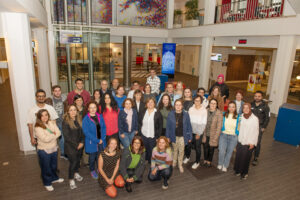
One of the best things about being a researcher is the opportunities it provides to learn from and with colleagues from different countries and contexts. This has certainly been my experience of late, as a member of the COST action, ‘Content and Language Integrated Learning Network for Languages in Education (CLIL NetLE).
Funnily enough, the CLIL NetLE has also sparked new local connections. During the CLIL NetLE’s international Teacher Training School in Leiden, Fred Janssen (Professor of Science Education and ICLON’s Scientific Director) and I explored a question that has been bubbling under the surface for some time: Are his perspective-oriented approach and my main research and teaching interest – disciplinary literacies – actually two sides of the same coin? Or, as our former colleague, Evelyn van Kampen, once put it, are we “digging the same tunnel”?
Subject-specific thinking and knowing
Perspectives and disciplinary literacies have one crucial element in common: the conviction that teaching and learning a subject involves subject-specific thinking and knowing. In other words, learning biology means learning to think like a biologist, and to understand the beliefs and assumptions that influence that discipline.
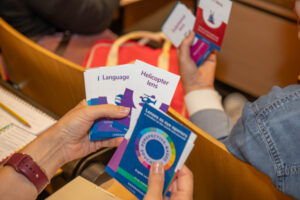
Perspective-based education is a way to help students get a grip on complex problems by posing questions through different ‘lenses’ (perspectives). The perspectives also provide direction in searching for and testing answers. Take the nitrogen crisis, for example. To grasp this topic, you must approach it from at least biological, chemical, political-administrative and economic perspectives.
The underlying principle of disciplinary literacies is that subject-specific thinking and knowing are linked to subject-specific communication. Due to their different frames of reference a biologist and a historian will each communicate knowledge in distinct ways. Communication in each field will differ again depending on purpose, audience and context. Thus, subject-specific communication is integral to teaching and learning any subject, in any language.
Missing Cs
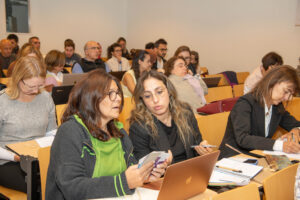
So what is it that keeps these two tunnels from meeting? It can help to refer a well-established model from content and language integrated learning (CLIL). According to the 4Cs (Coyle et al., 2010), subject teaching involves four key elements, which are inextricably linked with each other: Content, Communication, Cognition and Culture. Through the lens of the 4Cs, it becomes clear why the perspective-based and disciplinary literacies ‘tunnels’ have never quite met. While their core is the same, each of them is missing explicit attention for a ‘C’.
While disciplinary literacies focuses heavily on the ways Communication, Cognition and Culture interact while learning or teaching subject content, there is little explicit attention in this field to which subject-specific Content should be learned and taught.
In the perspective-based approach, choice of Content is the central issue. It relates closely to the Cognitive processes, beliefs and types of behaviour (Culture) associated with the subject. What is missing is attention for the impact these have on how we Communicate in that discipline.
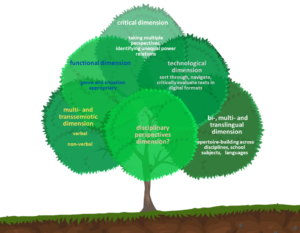
Out of the tunnel and into the tree
We believe this exploration is a valuable step in bringing our respective ‘tunnels’ closer together and in opening them up further so that subject specialists can relate to and translate them into practice.
But perhaps we should get out of our tunnels altogether and breathe some fresh air. CLIL NetLE has published an initial operationalisation of bi- and multilingual disciplinary literacies. There, the concept is broken down into functional, critical, technological, multi- and transsemiotic, and bi-, multi- and translingual dimensions, depicted through the metaphor of a tree. Might there also be room in that tree for a ‘disciplinary perspectives’ dimension? This is a question we hope to explore further, both locally and with our international partners.
Sparked your interest?
- You can find out more about the CLIL NetLE and access its outputs so far, see the CLIL NetLE website. If you are a researcher in CLIL, disciplinary literacies, subject didactics or a related area, and would like to get involved in CLIL NetLE, you can find out how here.
- You can find more information about ICLON’s work with the perspective-based approach, including professional development and workshops for schools, here (in Dutch – fill in the contact form if you would like to discuss possibilities in English).
- For teachers and schools looking to delve further into CLIL, disciplinary literacies or the perspectives, let us know! ICLON’s professional development department can discuss the possibilities for bespoke programmes or guest lectures.
- Another tunnel we may want to access in this discussion is the Pluriliteracies movement, spearheaded by Do Coyle and Oliver Meyer.
Photography: Stefanie Uit Den Boogaard
Tree figure adapted from the original by Talip Gülle


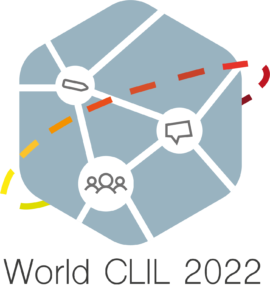
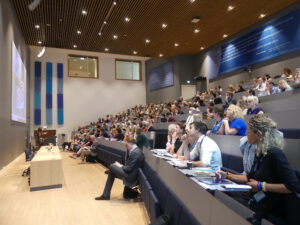
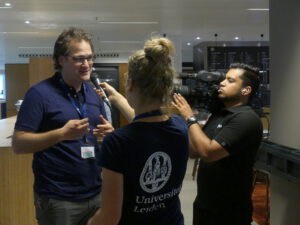
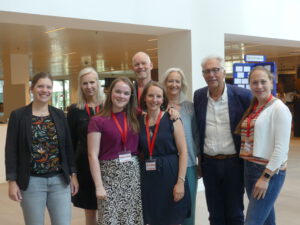

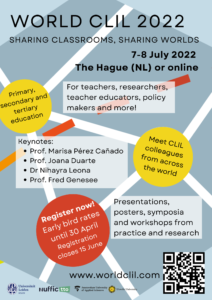

Recent Comments